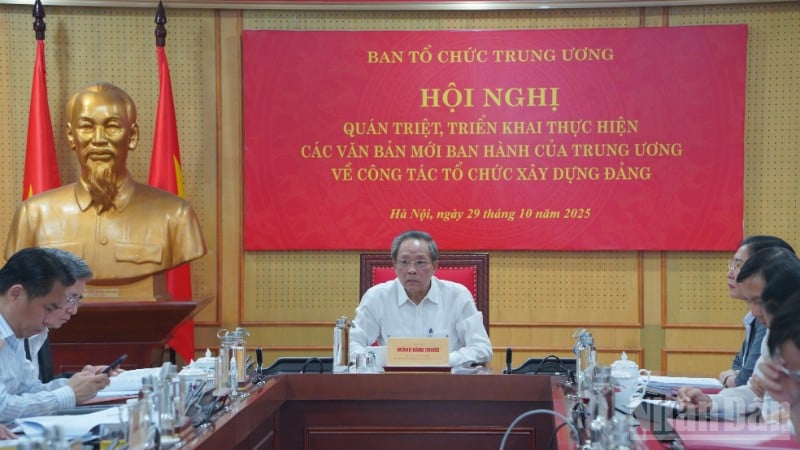
The content of Directive No. 53-CT/TW is as follows:
In recent times, the Party and State have paid attention to leadership and direction, creating many positive changes in the accountability of agencies, organizations and individuals in public service activities. Institutions and laws on accountability have been gradually improved; increased publicity, transparency, proactive provision of information on important policies and guidelines, complicated cases and matters of public concern. Linking accountability with criticism and self-criticism; enhancing dialogue, resolving recommendations, reflections, complaints, denunciations, and pressing issues of the people, making an important contribution to the work of Party building and rectification, preventing and combating corruption, waste, and negativity, building and perfecting the socialist rule-of-law State of Vietnam of the people, by the people, and for the people.
However, awareness and accountability of agencies, organizations and individuals in public service activities are still limited. Institutions and laws on accountability are still scattered, inadequate, overlapping, and lack binding mechanisms and handling of violations. Inspection, supervision and monitoring work has not received due attention; in many places, the implementation of accountability is still formal, even shirking, avoiding, and dishonestly explaining; there is a lack of criteria to assess the level of effectiveness and people's satisfaction with the accountability of agencies, organizations and individuals in public service activities. Information technology infrastructure and digital transformation are still inadequate, not meeting the requirements of receiving, explaining and responding to people's opinions.
To strengthen the Party's leadership in implementing accountability of agencies, organizations and individuals in public service activities, meeting the country's development requirements in the new period, the Politburo requires Party committees and organizations to focus on leading and directing the effective implementation of the following key tasks and solutions:
1. Strengthen propaganda, education , raise awareness, responsibility, and build a culture of accountability in public service activities. Heads of Party committees, authorities, localities, agencies, and units must directly lead, direct, and strictly implement regulations on accountability; consider this an important and regular political task, a measure of the mettle, ethics, capacity, and spirit of responsibility of cadres and party members. Link accountability with the responsibility to set an example, with self-criticism and criticism in party activities, becoming a regular practice, gradually forming a culture of accountability in the entire political system and society. Clearly define accountability as a criterion for evaluating Party committees, Party organizations, cadres, and party members every year; resolutely fight and eliminate manifestations of avoidance, shirking, incomplete explanation, and dishonesty in public service activities.
2. Review and improve institutions and laws on accountability, ensuring consistency, uniformity, feasibility, suitability with practice and serious and effective implementation. Amend the law on anti-corruption, clearly defining principles, subjects, contents, forms, procedures, rights and obligations of agencies, organizations, individuals and mechanisms for monitoring and handling violations in accountability in public service activities. Improve laws on justice, complaints, denunciations, citizen reception, land, planning, environment, investment, construction, management and use of public assets, public finance, ensuring the right to access information, the right to request explanation of the press, people, and businesses; and the accountability of relevant agencies, organizations, and individuals in public service activities.
Develop a set of criteria to evaluate the effectiveness of accountability implementation specifically for each sector and field, linked to the level of satisfaction of the people and businesses. Review, amend and supplement regulations on inspection, supervision, audit, ensuring strict and synchronous handling of violations of accountability. Research and develop regulations on accountability implementation within the Party to ensure synchronous and unified implementation throughout the political system.
3. Improve quality, create clear changes in the implementation of accountability, associated with power control, prevention and fight against corruption, waste and negativity in areas directly related to people and businesses, areas prone to corruption, waste and negativity, especially enhancing publicity, transparency and accountability in personnel work, policy making, law making, administrative procedures, judiciary, land, environment, planning, construction, management and use of finance, public assets, etc. Party committees, party organizations, agencies and units proactively review, amend and supplement the regulations, processes and provisions of their agencies, organizations and units on accountability; receive and promptly explain and clarify issues that people, businesses, agencies and organizations propose, reflect and request for explanation; Proactively exchange and dialogue directly with people and businesses to resolve pressing issues right at the grassroots level, not allowing complaints and denunciations to drag on for a long time and go beyond the level of authority.
4. Strengthen inspection, supervision and monitoring of the implementation of Party regulations and State laws on the implementation of accountability by agencies, organizations and individuals in public service activities. Promptly detect and strictly handle violations, especially acts of evasion, shirking of responsibility, slow explanation and dishonest explanation. Include the task of inspecting and monitoring the implementation of accountability in the annual inspection and supervision program of Party committees and inspection committees at all levels.
5. Promote and further enhance the supervisory role of elected agencies and representatives, the Vietnam Fatherland Front, member organizations, and the press on the accountability of agencies, organizations, and individuals in public service activities. Continue to innovate and improve the quality of questioning, answering questions, and explaining at the National Assembly and People's Councils at all levels; perfect the protection mechanism, promote the supervisory role of the people, create favorable conditions for people to make recommendations and reflect on violations in the implementation of accountability of agencies, organizations, and individuals in public service activities. Strengthen thematic supervision on accountability and the implementation of recommendations and commitments after explanation, in conjunction with responding to voters' recommendations, resolving complaints, denunciations, recommendations, and reflections of citizens.
6. Promote the application of information technology, digital transformation, build a national database on accountability, ensure connection and communication from the central to the grassroots level. Build a specialized electronic information portal to serve the reporting and receiving and responding to requests for reporting from people and businesses; promptly inform and explain about new policies, decisions, and complex, sensitive issues of public concern.
7. Implementation organization
- Provincial, municipal and central party committees focus on leading, directing, thoroughly grasping and seriously implementing this Directive throughout the entire party organization. Develop specific plans, clearly define responsibilities and regularly inspect, supervise and urge implementation.
- The National Assembly Party Committee, the Government Party Committee and relevant Party committees and organizations focus on leading and directing the urgent review, amendment and supplementation of laws on corruption prevention and control and laws related to accountability, ensuring consistency, unity, feasibility, suitability with reality and serious and effective implementation.
- The Government Party Committee directed the development of a set of criteria to evaluate the effectiveness of accountability implementation and the construction of a national database on accountability implementation, ensuring consistency and connectivity from the central to grassroots levels.
- The Central Propaganda and Mass Mobilization Commission directs the promotion of propaganda and education to raise awareness and responsibility of cadres, party members and people regarding the accountability of agencies, organizations and individuals in public service activities.
- The Central Organizing Committee issues guidelines and regulations on including criteria on accountability in the annual assessment, classification, emulation, and reward of Party committees, Party organizations, cadres, and Party members.
- The Central Inspection Commission directs the review, advises on amendments and supplements to regulations on inspection, supervision and disciplinary action against Party committees, Party organizations, cadres, Party members and leaders who violate accountability; guides the inclusion of inspection and supervision of leadership, direction and accountability into the annual inspection and supervision programs of Party committees and inspection committees at all levels.
- The Central Internal Affairs Commission shall preside over and coordinate with the Central Inspection Commission and relevant agencies to research and advise the Politburo to issue regulations on the implementation of accountability within the Party; monitor, inspect, supervise, urge, summarize and conclude the implementation of the Directive, and report to the Politburo and the Secretariat.
This directive is disseminated to the Party cell for implementation.
Source: https://nhandan.vn/tang-cuong-su-lanh-dao-cua-dang-doi-voi-viec-thuc-hien-trach-nhiem-giai-trinh-trong-hoat-dong-cong-vu-post919086.html





![[Photo] Hue: Inside the kitchen that donates thousands of meals a day to people in flooded areas](https://vphoto.vietnam.vn/thumb/1200x675/vietnam/resource/IMAGE/2025/10/29/1761738508516_bepcomhue-jpg.webp)
![[Photo] Human love in the flood in Hue](https://vphoto.vietnam.vn/thumb/1200x675/vietnam/resource/IMAGE/2025/10/29/1761740905727_4125427122470875256-2-jpg.webp)
![[Photo] Prime Minister Pham Minh Chinh chaired a meeting to evaluate the operation of the two-level local government model.](https://vphoto.vietnam.vn/thumb/1200x675/vietnam/resource/IMAGE/2025/10/29/1761751710674_dsc-7999-jpg.webp)


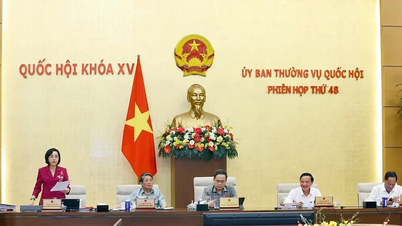
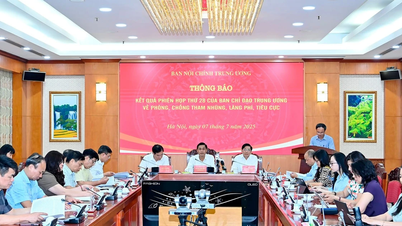

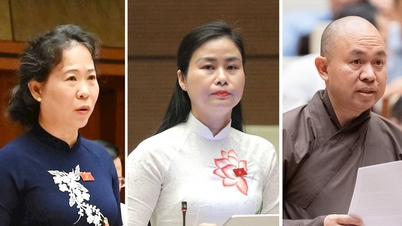

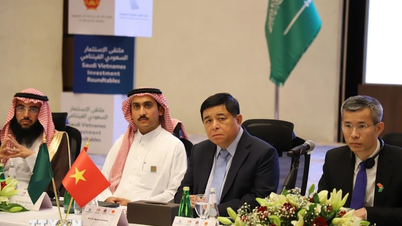






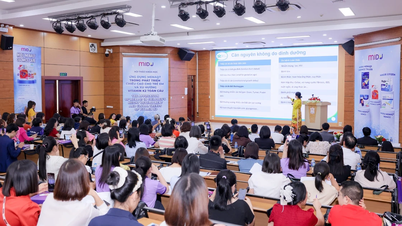
![[Photo] Prime Minister Pham Minh Chinh chaired a meeting to evaluate the operation of the two-level local government model.](https://vphoto.vietnam.vn/thumb/402x226/vietnam/resource/IMAGE/2025/10/29/1761751710674_dsc-7999-jpg.webp)























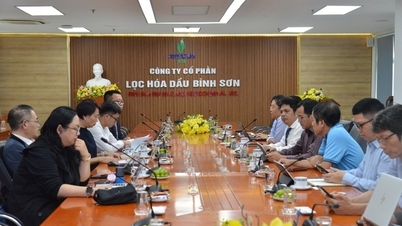



















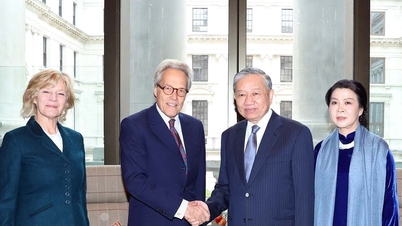
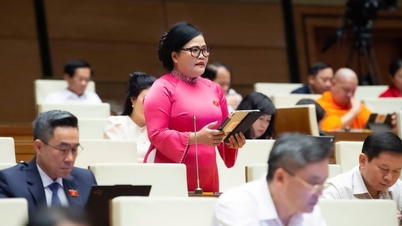

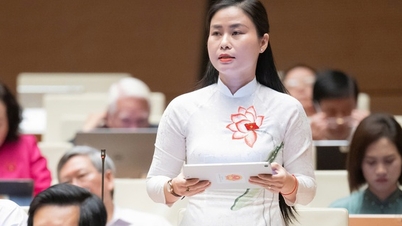

![[Live] Concert Ha Long 2025: "Heritage Spirit - Brightening the Future"](https://vphoto.vietnam.vn/thumb/402x226/vietnam/resource/IMAGE/2025/10/29/1761743605124_g-anh-sang-am-thanh-hoanh-trang-cua-chuong-trinh-mang-den-trai-nghiem-dang-nho-cho-du-khach-22450328-17617424836781829598445-93-0-733-1024-crop-1761742492749383512980.jpeg)





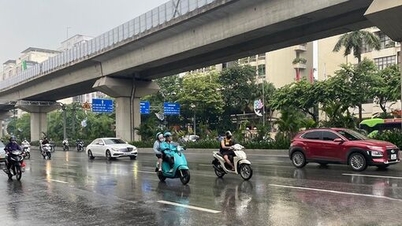




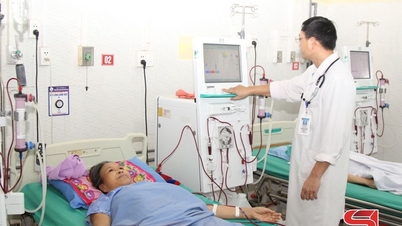














Comment (0)